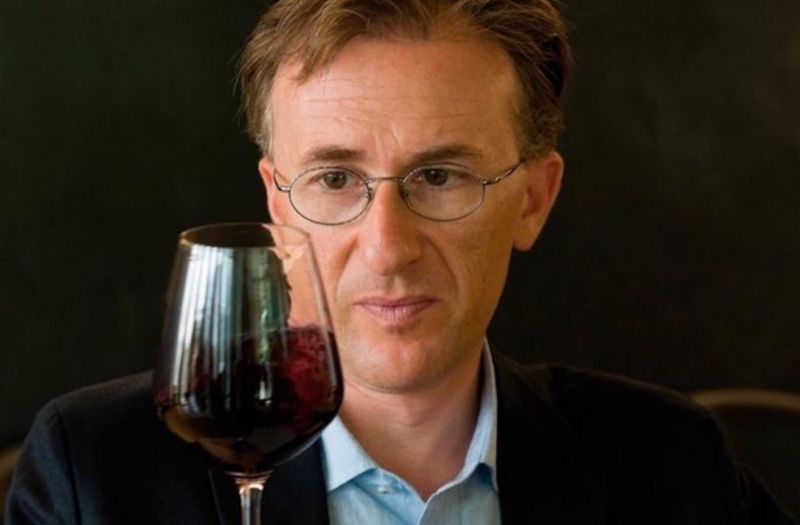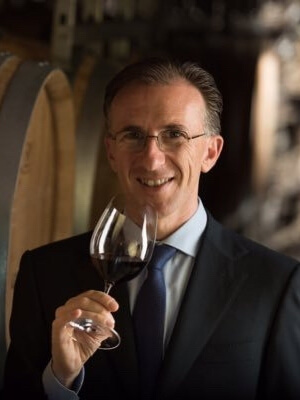Educating Sommeliers Worldwide.
By Beverage Trade Network

Paolo Basso became the ASI Best Sommelier in the World in 2013 after coming second in the same competition three times 2000, 2007, 2010, the latter of which he was crowned Best Sommelier in Europe. He has had wide experience in one and two Michelin star restaurants. He has now turned his attention towards wine production in his home country of Switzerland. He shared his valuable perspective as a student, winner and wine lover with SommelierBusiness.com
A lot of lucidities to be aware of your attitude to study, because there is much to study. Then a lot of time to do it, perseverance to dedicate all the available time of private life to this project and last but not least a budget that must be allocated to support studies and tastings.
When I was at the hotel management school and I discovered that wine was the most complex and difficult subject to understand. This seduced me and I began to deepen my knowledge of the topic, discovering that in wine there is nature, science, geography, history, traditions, culture and a bit of mystery.
The best wine I've ever tasted was a 1989 Château Haut Brion in magnum, tasted in 2014. The best wine experience was a visit to the Tuscan estate of Isole e Olena where I learned much about viticulture.
The Sommelier must be a reference point for the customer in the selection of wines. This is what the customer asks us to do: to be quality filters that give them the assurance of having wines of a high-quality level corresponding to their price range. If we make a mistake in this mission by recommending wines with faults, then, in ten years time the profession will no longer exist.
Everyone chooses the path that suits them best. However, I would say that the sommelier curriculum must contain at least ten years of work in high-level fine dining restaurants. These are places to learn food and wine matching whilst understanding the psychology of the consumer. These are essential experiences that other wine-related training courses do not offer.

Since I became a producer, I've known the other side of the story and I understand that some sommeliers are not beloved by producers. As a producer, after three years of hard work and many risks, including economic ones, a sommelier makes me constructive comments, I gladly accept them. But, if the comments are unfounded and made without knowledge, I would be less accepting. In my career as a sommelier at the highest level, I have kept the ability to taste objectively. I know very well where the quality level of my wine is. A sommelier must always remember that behind a glass of wine there is a lot of work and commitment that must be respected.
Switzerland has very different geographical and climatic conditions and also very different cultures and traditions. This means that we produce wines of great diversity and absolute quality. They are only to be discovered!
As I said before, for the consumer, a good sommelier must be a qualitative filter to allow only high-quality wines to pass through, obviously in relation to their price. To do this he must be a good psychologist to understand the wishes of the customer and the context of consumption. For the restaurateur, a good sommelier is the one who knows how to manage the cellar well and the sales of wine, that generates profits and creates customer loyalty.
The best closure, in my opinion, is the screw cap, but due to the prejudices of the customer, it is difficult to use it. The right compromise is the TCA-free microgranulated cork stoppers. I am more and more disappointed by natural cork, especially since I am a producer and realize that many of the wines that are flawed due to the cork are drunk by consumers who do not realize that the cause is the cork and are judged negatively.
It depends on what the objective is. It is clear that in a restaurant you go first of all to eat, so normally the wine must adapt to the style of cooking. Here the sommelier's ability is to understand the cuisine, context and adapt the selection of wines. In no case should the sommelier make a choice for personal pleasure. In my case that now I am asked to animate wine-dinners around the world where wine is the most important element of the event, is the cuisine that must be adapted. Making a good wine with a medium maturation takes five to ten years. It takes a few hours to make a dish. It is clear that it is the dish that must adapt to the wine.
Many thanks for your time!
Alistair Morrell – Editor - SommelierBusiness.com